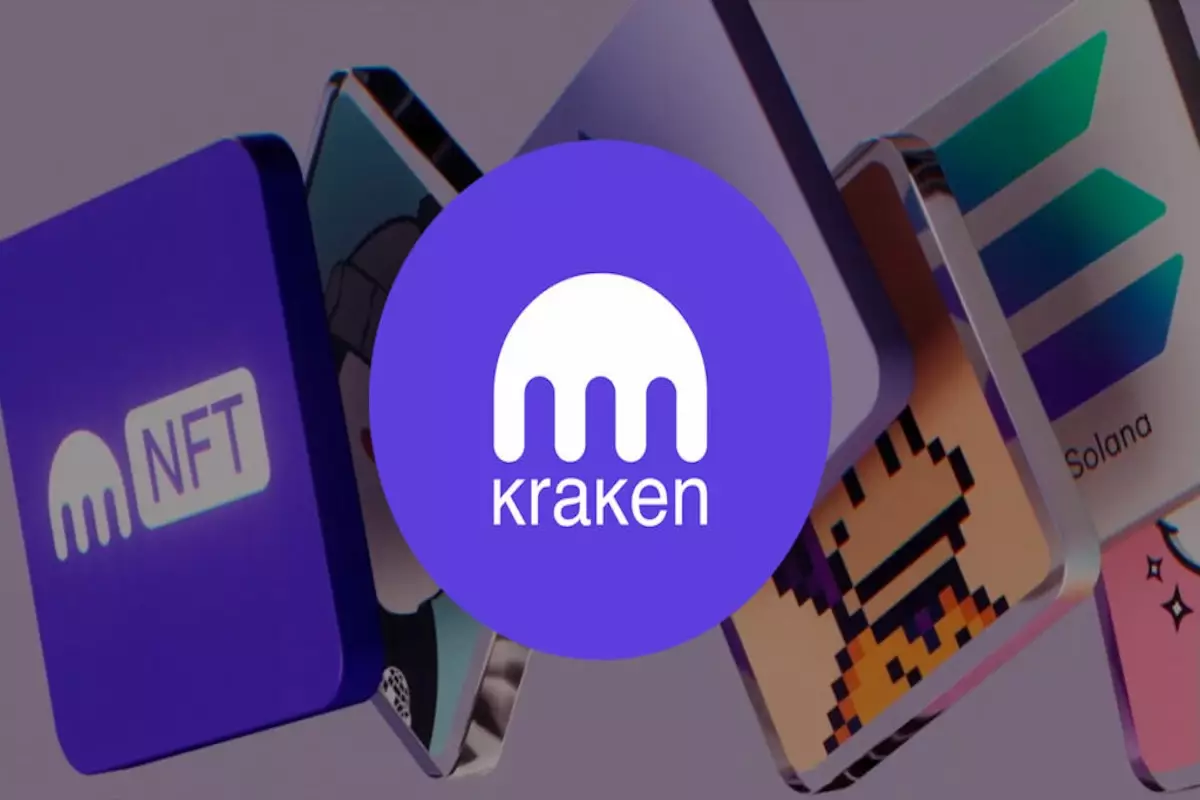In a decisive move that underscores the rapidly changing dynamics of the cryptocurrency industry, Kraken has announced the imminent closure of its NFT marketplace. This strategic shift is not merely a reaction to immediate market pressures but is indicative of a broader re-evaluation of priorities in the crypto space. Kraken, one of the foremost players in the cryptocurrency exchange arena, is reallocating its resources to facilitate the development of new projects aimed at enhancing its core offerings. This decision marks a significant departure from the burgeoning NFT market, which has seen a notable decline in activity and trading volume over the past year.
The official announcement of the marketplace’s withdrawal came on November 27, with the complete shutdown expected to unfold over the next three months. Kraken’s management has affirmed that the decision to close the NFT platform is part of a long-term strategic realignment, focusing on new innovations that are better suited to meet evolving consumer demands and technological advancements.
Kraken’s exit from the NFT space reflects the larger malaise affecting the market itself. Trading volumes for NFTs have languished, with weekly figures dropping below the $200 million mark since April 2024. While certain high-value projects like CryptoPunks continue to attract interest, the NFT marketplace as a whole is facing stagnation. This lack of momentum might prompt other industry players to reassess their own projects and service offerings in an increasingly competitive environment.
The dominance of well-established platforms like OpenSea and Rarible plays a crucial role in shaping user behavior and market trends. OpenSea, known for its multi-chain support and extensive NFT variety, boasts a substantial user base. However, high competition and market saturation have led to dwindling transaction volumes. Conversely, Rarible’s decentralized governance model, facilitated through the RARI token, appeals to creators wishing for greater control over their digital assets; yet this differentiation alone may not be sufficient to safeguard against market volatility.
As Kraken prepares to wind down its NFT operations, users will face new challenges in managing their digital assets. NFT collectors must act swiftly to move their assets out of Kraken. Options available include transferring NFTs to Kraken’s dedicated wallet or migrating to self-custodial wallets. In light of Kraken’s closure, collectors should explore alternatives through established platforms or consider emerging marketplaces boasting unique features.
The search for new platforms could foster innovation and drive competition in the NFT space. In an environment where users are emerging from Kraken’s marketplace, the competition may intensify, compelling existing platforms to enhance their security measures and develop user-friendly interfaces. Existing users should acquaint themselves with the specific requirements of their chosen platforms and ensure their digital tools are updated accordingly.
Despite the temporary setbacks experienced by the NFT marketplace, there are positive undercurrents signaling potential growth areas. Initiatives like Kraken’s plan to launch its own blockchain in 2025 exemplify a forward-thinking approach towards technological advancement and market viability. The company’s pivot not only highlights the importance of continuous innovation but also sets a standard for others within the industry.
To thrive in this evolving landscape, NFT marketplaces must prioritize several key aspects. They should adapt to market trends by innovating in response to user preferences, ensuring security to maintain consumer trust, and simplifying the trading process to foster user engagement. Additionally, the emergence of new opportunities will be critical as players in the space look to attract users with unique and appealing features.
Kraken’s decision to close its NFT marketplace symbolizes a significant moment of introspection for the broader cryptocurrency landscape. As the market grapples with challenges, Kraken’s shift towards blockchain development highlights how crypto platforms are evolving in response to industry demands. As we look ahead, it is clear that flexibility and innovation will be paramount for NFT marketplaces aiming to establish themselves in an ever-competitive environment. For collectors, creators, and marketplace operators, agility will be crucial as they navigate the intricate dynamics of a changing digital frontier.

